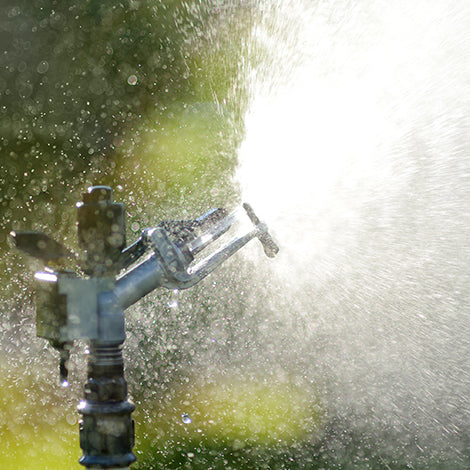Winter Garden Freeze Prevention: Effective Precautions and Practical Tips
Winter Garden Freeze Prevention: Effective Precautions and Practical Tips

Winter can be a challenging season for garden enthusiasts, especially when it comes to protecting your garden from freezing temperatures. To help you prepare, we've compiled a comprehensive guide on winter garden freeze prevention. This beginner's guide will walk you through effective precautions and practical tips to keep your garden freeze-proof all winter long. From safeguarding your outdoor faucets to using anti-freeze measures, we’ve got you covered.
Understanding the Impact of Freezing Temperatures
Why Freeze Prevention Matters
Freezing temperatures can wreak havoc on your garden, causing significant damage to plants, soil, and garden infrastructure. Water expands when it freezes, leading to burst pipes, cracked pots, and damaged plant cells. By taking preventive measures, you can protect your garden from costly repairs and ensure it remains healthy throughout the winter.
Recognizing Vulnerable Areas
Identify the parts of your garden most susceptible to freezing. These typically include outdoor faucets, water lines, and delicate plants. Understanding where to focus your efforts will make your freeze prevention strategy more effective.
Preparing Your Garden for Winter
Draining and Storing Garden Hoses
One of the simplest yet most crucial steps in freeze prevention is to drain and store your garden hoses. Water left inside hoses can freeze, causing them to crack and become unusable. Disconnect hoses from outdoor faucets, drain them thoroughly, and store them in a frost-free location.
Insulating Outdoor Faucets
Outdoor faucets are particularly vulnerable to freezing. To freeze-proof them, start by draining any remaining water from the pipes. Then, install an outdoor faucet cover or wrap the faucet with insulating material such as foam or rags. This extra layer of protection can prevent the faucet from freezing and bursting.
Protecting Your Plants
Mulching and Covering Plants
Mulching is an effective way to insulate the soil and protect plant roots from freezing temperatures. Apply a thick layer of mulch around the base of your plants to retain soil moisture and temperature. Additionally, consider using frost blankets or plant covers to shield delicate plants from the cold.
Using Anti-Freeze Solutions for Plants
For added protection, you can use anti-freeze solutions specifically designed for plants. These products help lower the freezing point of water within plant cells, reducing the risk of frost damage. Be sure to follow the manufacturer's instructions for proper application.
Maintaining Garden Equipment
Winterizing Irrigation Systems
Irrigation systems are often overlooked during winter preparations. To prevent freeze damage, drain all water from the system and blow out any remaining moisture with compressed air. This step ensures that no water is left to freeze and damage your pipes or sprinkler heads.
Storing Garden Tools and Equipment
Store your garden tools and equipment in a dry, frost-free environment. Clean and dry all tools before storing them to prevent rust and damage. For larger equipment like lawnmowers or tillers, consider using a protective cover to shield them from the elements.

Creating a Winter-Friendly Garden Environment
Selecting Freeze-Proof Plants
Choose plants that are naturally resistant to freezing temperatures. Many perennials and shrubs are hardy and can withstand cold weather. Research and select plants suited to your climate to ensure they thrive even during winter.
Designing Windbreaks and Shelters
Wind can exacerbate the effects of freezing temperatures. Create windbreaks using hedges, fences, or temporary barriers to protect your garden. Additionally, consider constructing shelters or using cloches to provide extra warmth for sensitive plants.
Monitoring and Adjusting Your Strategy
Regular Inspections
Conduct regular inspections of your garden throughout the winter. Check for signs of frost damage, such as wilting or discolored leaves, and take action immediately. Addressing problems early can prevent more significant issues later.
Adjusting Based on Weather Conditions
Stay informed about the weather forecast and adjust your freeze prevention strategy accordingly. If an extreme cold front is expected, take additional measures to protect your garden. Flexibility and vigilance are key to effective winter garden management.
Conclusion: Ensuring a Healthy Garden All Year Round
By following these effective precautions and practical tips, you can successfully prevent winter freeze damage in your garden. From insulating outdoor faucets to using anti-freeze solutions, each step contributes to creating a freeze-proof environment. With proper preparation and maintenance, your garden will remain healthy and vibrant, ready to flourish when spring arrives.
By taking the time to prepare and protect your garden, you'll be rewarded with a beautiful and thriving space, no matter the season. Happy gardening!





